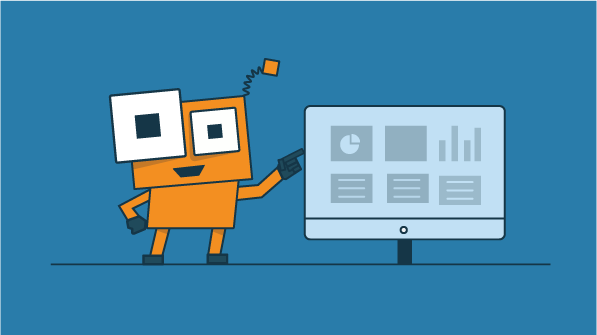Joe Kutner has been a programmer for over a decade and he’s spent many of those years researching the health issues that relate to his sedentary job. He’s also a former college athlete and Army Reserve physical fitness trainer. Through his research and personal experience, he’s learned that small changes can make big differences in peoples’ health. Now he wants to help other programmers improve their lifestyles.
I am not a doctor. But I am a programmer, which means I sometimes think I know everything about everything. It also means I like to get to the bottom of things, and you probably do too.
My book, The Healthy Programmer, is all about getting to the bottom of the health issues that are most important to a tech worker. It’s backed up by real science and includes interviews with the researchers and experts who conducted those studies. The advice is pragmatic and actionable—never lofty or unachievable. By taking a look at why I wrote this book, I think you’ll come to understand why it’s different from most health-related publications.
![The Healthy Programmer clip_image002[6]](https://blog.syncfusion.com/wp-content/uploads/2018/08/image-160.jpg)
Why did I write the book?
In 2011, I read an article in a popular tech magazine that made some dramatic claims about the conclusions of a health study. It said something like, “Lose weight while sitting all day.” It wasn’t the first article like this I’d seen, and I’m sure you’ve seen a few too. But something tipped the scale for me and I started searching for the original study, which I found in a science journal. As with most academic papers, it included the authors’ contact information, and I immediately wrote an email.
I asked the paper’s authors if the conclusions in the magazine were correct and to my surprise I received a lengthy response. It turns out that when researchers spend five years of their life working on a study, they are pretty eager to talk about it. They’ll even talk to a programmer. The authors had a pragmatic and level-head opinion about what their study meant and that’s how my book had its genesis. I wanted to apply the same pragmatism to a book about health as those researchers showed in their response.
I emailed the authors of another paper and another and another. I also started doing phone interviews. Eventually I had collected a trove of responses from nutritionists, therapists, scientists, and athletic trainers. In almost every case, the science was clear: the habits of a typical programmer are lethal. It’s not that we’re doing ourselves a disservice, it’s that we are literally killing ourselves when we sit all day.
But remember, I’m not a doctor. I’m more like a St. Bernard with a barrel strapped around its neck. Someone gave it to me, and I want bring it to you. The best science we have tells us that sitting for 16 to 18 hours each day and taking less than 5,000 steps per day puts a person at a much higher risk for heart disease, diabetes, cancer, and even general mortality.
![A St. Bernard clip_image004[6]](https://blog.syncfusion.com/wp-content/uploads/2018/08/image-458.png)
What do I hope the reader will achieve?
I want the readers of my book to make the smallest of changes to their daily routines. A little extra walking, a little less sitting, a few therapeutic exercises each day, and some comfortable changes to their diets. Nothing dramatic.
It turns out that small changes, like adding 20 minutes of walking to each day, can have profound effects on your health. Removing little as 100 calories, a tablespoon of mayonnaise, may be the only dietary adjustment you need to make. These tiny changes can literally save your life.
How does this book help readers achieve it?
The Healthy Programmer sets out a simple plan that is iterative and incremental—just the methods we use to build software. It’s also pragmatic and balanced. I don’t expect my readers to fall for catchy headlines, but I do expect them to ask for data or evidence. That’s why The Healthy Programmer has a 16-page bibliography and includes numerous interviews with those experts I reached out to. Every claim and bit of advice in The Healthy Programmer is backed up by good, solid science.
In fact, you should go for a walk right now. Stop reading this post, and go take some steps. If you’re feeling energetic, then go up and down a few flights of stairs. Simple activity like this can have a big impact on your health and your brain. In The Healthy Programmer you’ll learn how and why.
Happy walking.
-Joe



